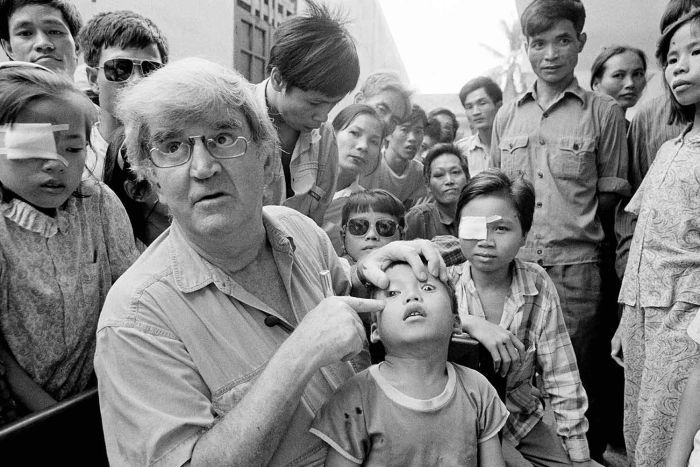By Herb Kimble.
s a young boy, Fred Hollows saw his father’s empathy for humanity and found it a virtue worth preserving. His father was an active Marxist and a Christian. He was convinced that everyone should receive a fair wage for their work, which was a foundation for his work later in life helping the aboriginal people of Australia.
Hollows was groomed to be a missionary from a young age, as his parents were extremely religious. With their encouragement, he joined a seminary after high school. He was on the path to becoming a priest and a missionary when he spent a summer working at a mental hospital. That time changed him for life.
He immediately enrolled at the Victoria University of Wellington, where he completed a BA degree. He continued his study at “Otega Medical School,” which earned him his medical degree. Hollows joined the Auckland Public Hospital out of school. There, he assisted eye surgeons and learned the trade. He paid particular attention to cataract blindness, which has recognized as a sever issue in Africa. He had hoped to emigrate there to treat it.
However, to help the poor required significant investment in education. He undertook specialty training in ophthalmology in England, completing his fellowship at the “Royal College of Surgeons”.
Finally, in 1968, he began his work helping the aborigines of Australia to see. He noticed a number of people suffering from trachoma, which is treatable, so he focused his efforts on correcting this problem and offering aborigines solutions to prevent blindness from setting in.



